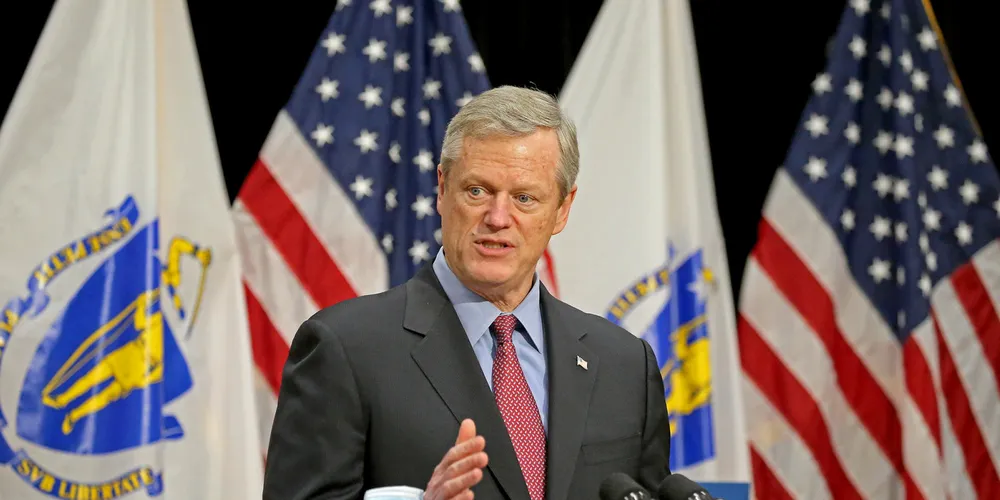'Offshore wind leader' | New Massachusetts law boosts capacity in US Atlantic
Outgoing governor Charlie Baker signed law that scraps price caps and replaces them with incentives for supply chain investment and workforce development

Outgoing Massachusetts governor Charlie Baker on Thursday signed legislation that expands the state’s offshore wind mandate from 4GW to 5.6GW while scrapping price caps and focusing on supply chain investment and environmental and stakeholder impact mitigation.
“Since taking office in 2015, we have... made strides in making MA [Massachusetts] a leader in the offshore wind and clean energy industries,” Baker said in a tweet 11 August. “Today, I signed a climate bill into law that will further support our administration's wide-ranging efforts.”
The lack of interest prompted Baker to call for removal of the cap to “ensure that Massachusetts retains its leading-edge position in the offshore wind policy debate”.
Iberdrola majority-owned Avangrid's Commonwealth Wind project won 1.2GW in last year’s auction at $77/MWh, below the cap set at $77.76/MWh, while Mayflower Wind, a joint venture between Shell New Energies and Ocean Winds, added 400MW at $72/MWh to their 804MW already under development.
Former US vice president and climate leader Al Gore tweeted: “This legislation is a true game-changer. It will create jobs, lower costs, increase US competitiveness, reduce air pollution.”
The law further establishes an offshore wind industry investment programme that over the next decade will enable the Massachusetts Clean Energy Centre (MassCEC) - the state regulator of offshore wind - to authorise tax incentives.
Certified companies would use them to develop supply chain development plans, while the MassCEC would be able to make funding available through the Offshore Wind Industry Investment Trust Fund for R&D, port development and grid upgrades.
The trust fund will also support municipalities in procuring offshore wind power directly from developers.
The law is actually a combination of two separate bills, one focused on offshore wind and the second on other clean energy and climate change goals, and includes stipulations pertaining to electric vehicles, natural gas consumption, as well as energy storage.
It further authorises the Massachusetts Department of Energy Resources (DOER) to engage in interstate regional cooperation on procurement and transmission goals that are “beneficial to the commonwealth”, as stated in the law’s text.
In an effort to respond to fisheries' concerns, the new law establishes a commission to ensure that fishing interests are adequately compensated for lost revenue and other impacts from offshore wind activities.